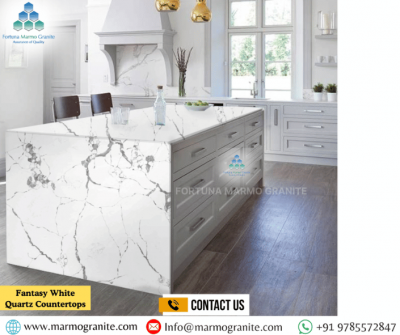The Ultimate Guide to Cleaning and Maintaining Quartz Surfaces for Lasting Beauty
Guide to Cleaning and Maintaining Quartz Surfaces Quartz countertops have grown extremely popular in recent years, and it's easy to see why. They combine striking visual appeal with exceptional durability, making them ideal for kitchens, bathrooms, and other high-traffic areas. Unlike natural stone, quartz is engineered to be non-porous. This creates a smooth, impenetrable surface that resists stains, moisture, and bacterial growth. Yet, This feature enhances longevity and makes quartz much easier to maintain than porous stones like granite and marble.
Moreover, Quartz countertops also come in a wide variety of colors, patterns, and finishes. Homeowners can achieve the perfect look without sacrificing strength or functionality. Consequently, While quartz is highly resilient, it is not completely immune to wear and tear. In contrast, Regular cleaning with mild, non-abrasive cleaners helps prevent dulling and keeps the surface radiant. Protecting quartz from excessive heat and avoiding harsh chemicals further preserves its beauty.
In addition, This comprehensive guide covers essential cleaning and maintenance practices, giving you the knowledge to keep your quartz surfaces looking flawless for many years.



Understanding Quartz: The Foundation of Care
Before discussing cleaning techniques, it is important to understand what quartz surfaces are made of. Engineered stone, also called quartz, consists of about 90–95% ground natural quartz mixed with 5–10% polymer resins and pigments. This combination gives quartz its strength, non-porous nature, and wide range of colors and patterns.
The polymer resins bind the quartz crystals together and create a smooth, impermeable surface. This non-porous quality gives quartz an advantage over natural stones like granite or marble, which need regular sealing to prevent stains and bacterial growth. While quartz is very hard, the resins can be sensitive to extreme heat and certain chemicals. Understanding this balance is essential for proper care.
Daily Care: Simple Steps for a Sparkling Surface
Wipe Spills Immediately: Quartz's non-porous surface allows you to clean spills before they dry and leave marks. Use a soft cloth or paper towel to blot spills right away. For sticky substances, gently scrape them with a plastic putty knife before wiping.
Clean with Mild Soap and Water: For daily cleaning, warm water and mild dish soap are sufficient. Apply the soapy water with a soft cloth or sponge and wipe the entire surface. Rinse the cloth or sponge frequently to avoid spreading residue. Finish by drying the countertop with a clean cloth to prevent water spots.
Avoid Abrasive Cleaners and Scrub Pads: Harsh chemicals and abrasive scrub pads can dull quartz surfaces over time. Avoid scouring powders, steel wool, and strongly acidic or alkaline cleaners. Choose gentle, non-abrasive cleaning solutions instead.
Use Cutting Boards: Quartz is scratch-resistant but not completely scratch-proof. Always use cutting boards for food preparation to protect your countertops from scratches and nicks caused by knives or sharp objects.
Tackling Stubborn Stains: Effective Cleaning Techniques
Grease and Oil: Moreover, For greasy spills, mix mild dish soap with warm water and clean the surface. For stubborn grease, use a degreasing cleaner designed for kitchen surfaces. Make sure it is non-abrasive and safe for quartz.
Dried Food: In addition, Gently scrape dried food with a plastic putty knife. Avoid metal scrapers, which can scratch the surface. After removing the residue, wipe the area with mild soap and water.
Ink and Markers: Consequently, Apply a small amount of rubbing alcohol to a clean cloth and gently dab the stain. Rinse the area thoroughly with water and wipe it dry. Always test this method in a hidden spot first to ensure it does not affect the finish.
Coffee, Tea, and Wine: Yet, Make a paste from baking soda and water and apply it to the stain. Let it sit for a few minutes, then gently wipe it away with a damp cloth. Rinse thoroughly and dry the surface.
Long-Term Maintenance: Preserving Your Quartz Investment
Avoid Harsh Chemicals: Harsh chemicals, including strong solvents, oven cleaners, and drain cleaners, can damage the resins in quartz and dull its finish. Always use gentle, pH-neutral cleaning solutions.
No Waxing or Sealing: Quartz does not require sealing like natural stone. Applying sealants or waxes can leave residue and dull the surface.
Regular Inspection: Check your countertops periodically for chips or cracks. Addressing damage promptly prevents it from worsening. Quartz is durable, but strong impacts can still cause harm.
Professional Cleaning (Optional): For deep cleaning or stubborn stains, hire a professional stone cleaning service experienced with engineered quartz.
Conclusion
Maintaining the beauty and durability of quartz surfaces requires consistent care and attention to detail, ensuring that they remain a stunning focal point in your home or commercial space for years to come. By adopting effective cleaning practices, utilizing gentle yet powerful cleaning agents, and preventing damage from harsh chemicals, you can preserve the luster and elegance of your quartz countertops, flooring, and backsplashes effortlessly. Whether it's daily cleaning, addressing tough stains, or implementing preventive measures to protect against potential scratches and etching, following the comprehensive guidelines outlined in this guide will keep your quartz surfaces looking as pristine as the day they were installed. Guide to Cleaning and Maintaining Quartz Surfaces
At Fortuna Marmo Granite, we take pride in offering premium quality quartz surfaces that combine strength, beauty, and low maintenance, making them a perfect choice for contemporary interiors. With our extensive range of quartz products and expert advice, we are committed to helping you achieve the perfect balance between style and functionality, ensuring that your investment in quartz surfaces continues to shine with lasting brilliance. Indian Granite Supplier Explore our exquisite quartz collection today and discover why Fortuna Marmo Granite is the trusted name in superior quality stone products.

